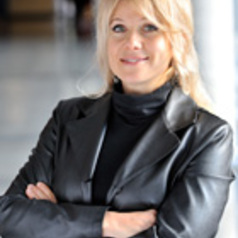
Marie-Christine Doran
Full Professor of Compared Politics, L’Université d’Ottawa/University of Ottawa
(French follows)
Marie-Christine Doran is a Full Professor of comparative politics at the School of Political Studies, University of Ottawa, specializing in democratization, human rights, and violence in Latin America. She is also a consultant on Latin American issues for the Ministry of Foreign Affairs of Canada (Global Affairs Canada) since 2015. She holds a Social Sciences and Humanities Research Council of Canada-SSHRCC grant on “Violence and Democracy: the Criminalization of Struggles for rights in Latin America (2018-2025), for which she is main researcher of a team of 7 specialists and Director of the Observatory on Violence, Criminalization and Democracy. Since the beginning of her career, Marie-Christine Doran has obtained research grants totalizing over 1 700 000 $ CAN for projects focused on the persistence of violence in democratic context in Latin America, the nature of political regimes, the weight of authoritarian political and legal legacies, the impact of social movements for rights, justice and memory, and the impact of violence by state and non-state actors on women, LGBTQ+ communities, indigenous and Afro-descendant defenders, in order to find solutions that reinforce democracy. She is a researcher at the International Panel on Exiting Violence (IPEV), and other international research platforms in Europe and Latin America, including the Brazilian CAPES International Research Network on Conflict Management in Plural Public Spaces Her published work include numerous peer-reviewed articles in four languages, some of which can be found at Academia and Researchgate, as well as two books, Le réveil démocratique du Chili. Une histoire politique de l’exigence de justice, (foreword by Alain Touraine,: Karthala 2016); as well as Human Rights as Battlefields. Changing Practices and Contestations (Palgrave Macmillan, 2019) and a third forthcoming book, Criminalizing Democracy:the Hidden Face of Violence in Latin America, to be published at Routledge in 2024. She is regularly invited to comment on Latin American politics and violence in Canadian and international media.
French
Marie-Christine Doran, PhD
Marie-Christine Doran est professeure titulaire de politique comparée à l’École d’études politiques de l’université d’Ottawa, spécialiste de la démocratisation, des droits humains et de la violence en Amérique latine. Elle est aussi consultante pour le Ministère des Affaires Mondiales Canada depuis 2015.Elle est chercheure principale d’une subvention du Conseil de recherches en Sciences humaines du Canada-CRSH pour le projet « Violence et démocratie : la criminalisation de la lutte pour les droits en Amérique latine » pour lequel elle dirige une équipe de 7 chercheur.e.s, ainsi que l’Observatoire violence, criminalisation et démocratie-OVCD. Depuis les débuts de sa carrière, elle a obtenu près de 1 700 000 $ (CAN).en subventions de recherche, au Canada et à l’international, pour des recherches portant notamment sur la persistance de la violence en contexte démocratique latino-américain, la nature des régimes politiques, le poids des héritages politiques et juridiques autoritaires, l'impact des mouvements sociaux pour les droits, la justice et la mémoire, ainsi que l'impact de la violence exercée par les acteurs étatiques et non étatiques sur les femmes, communautés LGBTQ+, les défenseurs autochtones et afro-descendants, afin de trouver des solutions qui renforcent la démocratie. Elle est chercheure dans plusieurs équipes internationales en Europe et Amérique latine dont l’International Panel on Exiting Violence (IPEV) et l’équipe brésilienne CAPES International Research Network on Conflict Management in Plural Public Spaces. Elle a été Fellow à l’université Harvard University, et professeure invitée, notamment à École des Hautes études en Sciences Sociales (Paris). Ses publications en 4 langues incluent de nombreux articles dont plusieurs sont disponibles sur Academia et Researchgate. mais aussi 2 ouvrages : Le réveil démocratique du Chili. Une histoire politique de l’exigence de justice, (foreword by Alain Touraine,: Karthala 2016); as well as Human Rights as Battlefields. Changing Practices and Contestations (Palgrave Macmillan, 2019), un 3ème ouvrage, Criminalizing Democracy:the Hidden Face of Violence in Latin America, paraîtra chez Routledge en 2024.Elle est régulièrement invitee à commenter l’actualité latino-américaine dans les médias canadiens et internationaux.
Less ![]()
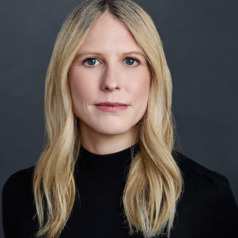
Marie-Eve Loiselle
Lecturer in Law, Macquarie University
Marie-Eve Loiselle is a Lecturer at Macquarie University in International Law and Legal Theory. Prior to joining Macquarie University, Marie-Eve was a Canadian Social Science and Humanities Research Council (SSHRC) Postdoctoral Fellow at the Munk School of Global Affairs and Public Policy (University of Toronto). She also held a research fellowship from the Max Planck Institute, Department of Ethics, Law and Politics. She was an Australian Research Council (ARC) Research Fellow at the Faculty of Law of the University of New South Wales, where she worked on the project, "Leveraging Power and Influence on the UN Security Council". She was also a research officer on the ARC linkage project "Strengthening the Rule of Law through the UN Security Council" (Australian National University). She received a PhD in Law and Governance from the Australian National University.
Less ![]()
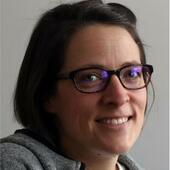
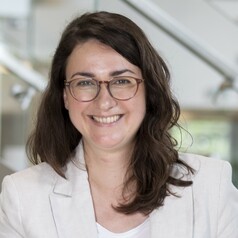
Marie-Rachel Jacob
Professeur-chercheur en management, EM Lyon Business School
Ancrée dans une observation-participante de plusieurs années au sein du siège d'un grand groupe, ma thèse a porté sur la collaboration entre salariés et travailleurs extérieurs. Je travaille depuis sur la manière dont les entreprises et les personnes vivent les transformations du travail et de l'emploi. En particulier, je m'intéresse aux questions du management des collectifs de travail, du dialogue social et des pratiques de GRH, des parcours des travailleurs et de la soutenabilité de nos modes de travail. Je mène mes recherches dans le cadre du centre o.c.e d'emlyon business school.
Less ![]()
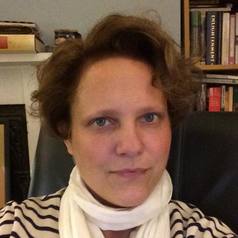
Marieke Riethof
Marieke Riethof has a PhD in Political Science and International Relations from the University of Amsterdam and is a lecturer in Latin American Politics at the University of Liverpool.
Her past research and publications focused on political strategies of the labour movement in Brazil, including the Latin American regional context. She is currently finishing a book on the trajectory and political strategies of the Brazilian labour movement. Her new research projects focus on Brazilian foreign policy in the context of international relations in Latin America. The project examines traditional as well as non-traditional areas of foreign policy, including environmental politics and human rights. In May 2011, she was an expert witness at the House of Commons Foreign Affairs Committee on UK-Brazil relations and Brazil's emerging global role. A second project deals with the role of transnational solidarity movements and exile in the opposition to military dictatorship in Chile with an initial focus on the UK.
Less ![]()
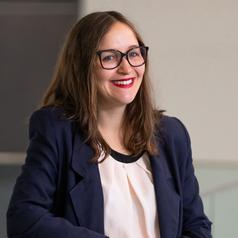
Marielle Papin
Assistant Professor in Political Science, MacEwan University
Over the last few years, I have worked on urban climate governance from local and global perspectives. More specifically I have studied the networks cities join or create to enhance their climate policies and their potential for generating innovative climate instruments. I am now starting a new research agenda on the governance of urban wellness and its synergies and conflicts with urban climate policy.
Less ![]()
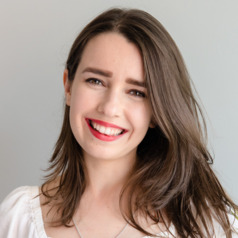
Mariia Sozoniuk
Graduate Researcher, Explanatory Journalism Project, Toronto Metropolitan University
Mariia Sozoniuk is a Master of Professional Communication (TMU). She conducted studies on Sustainability, User Experience and Consumer Behaviour at the Sustainable Packaging Research Lab at TMU, employing Online Surveys and PLS-SEM analysis. She also worked with the Explanatory Journalism (XJO) team at TMU on the annual survey of The Conversation Canada readers to deliver practical implications through the Theory of Planned Behaviour study. Mariia continues to work with the XJO team, surveying news consumers from Canada, the UK and Australia to inspect their perception of using Artificial Intelligence (AI) in news creation.
Less ![]()
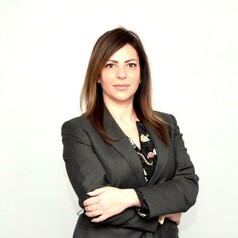
Marija Jovanovic
Senior Lecturer (Associate Professor), University of Essex
Marija Jovanović is a Senior Lecturer (Associate Professor) at the Essex Law School and Human Rights Centre. Her research focuses on modern slavery and the way this phenomenon interacts with different legal regimes, such as human rights law, criminal law, labour law, immigration law, international trade law, and business regulation. She is the author of State Responsibility for ‘Modern Slavery’ in Human Rights Law (Oxford University Press, 2023). Marija holds DPhil, MPhil, and Magister Juris degrees from the University of Oxford, and a law degree from Serbia. She previously held a Postdoctoral Fellowship in ASEAN Law and Policy at the National University of Singapore, and worked as a Lecturer at the University of Kragujevac and University of Belgrade. Dr Jovanović is currently leading a research project funded by the Arts and Humanities Research Council and the Modern Slavery and Human Rights Policy and Evidence Centre, which investigates the experiences of modern slavery survivors in the UK prisons.
Less ![]()
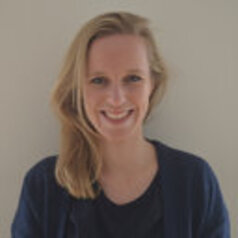
Marijn Hoijtink
Associate Professor in International Relations, University of Antwerp
I am Associate Professor in International Relations at the Department of Political Science at the University of Antwerp. Previously I was Assistant Professor at Vrije Universiteit (VU) Amsterdam. My research and teaching focuses on military technology, militarism and the changing character of warfare. In my current research project, funded by the Dutch Research Council (NWO), I examine military applications of artificial intelligence (AI), with a particular interest in how these technologies shape the way in which warfare is thought, fought and lived.
Less ![]()

Marika Avenel Brown
PhD Candidate & Teaching Fellow, McMaster University
Marika Avenel Brown is currently an ABD PhD Candidate and Teaching Fellow in the Department of English and Cultural Studies at McMaster University. She also has an undergraduate specialization in Interdisciplinary Studies in Sexuality and a graduate specialization in Digital Humanities.
Her dissertation work looks to speculative fiction to trouble the division between natural and unnatural and to posit better future entanglements between human, nonhuman, and more-than-human life and she has written about critical veganism as a mode of speculative possibility.
Less ![]()
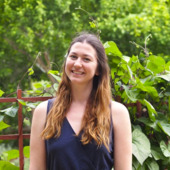
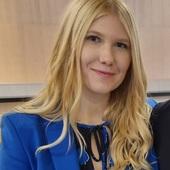
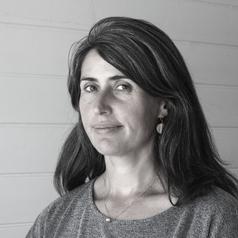
Marika Sosnowski
Postdoctoral research fellow, The University of Melbourne
Marika Sosnowski is an Australian lawyer, a Postdoctoral Research Fellow at the University of Melbourne Law School and a Research Associate with the German Institute for Global and Area Studies (GIGA) in Hamburg. Her primary research interests are in the fields of critical security studies (primarily ceasefires), local/rebel governance and legal systems (especially issues of citizenship and belonging). Her geographical area of specialisation is the Middle East, particularly Syria.
Less ![]()


Marilla L. Druitt
Affiliate Senior Lecturer, Faculty of Health, Deakin University
Dr Marilla Druitt is an obstetrician and gynaecologist who works in Geelong in the public and private systems and is a RANZCOG/AGES level 5-6 accredited surgeon.
She is interested in the mind-body connection in pelvic pain, part of an interdisciplinary persistent pelvic pain clinic at Geelong Hospital.
She is a RANZCOG councillor, helped write the national Endometriosis Guideline, does research with Australasian Interdisciplinary Researchers in Endometriosis (AIRE), and Deakin University. She is also part of a Bellarine wide clinician network caring for trans and gender diverse patients.
Current research includes the Happi study – CBT & yoga for pelvic pain, an e-hypnotherapy trial for pelvic pain, an endometriosis education course, a cannabis trial and a planned porphyria study for patients.
Marilla is the current president of Pelvic Pain Victoria, is involved in the Victorian state government redesign of gynae outpatient clinics in the public system, and is the gynaecologist on the Victorian's Women's Pain Inquiry.
Less ![]()
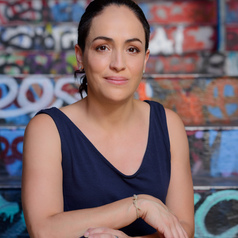
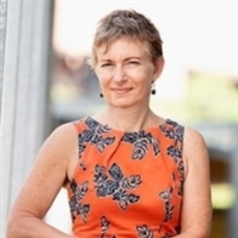
Marilynne N Kirshbaum
Professor and Chair of the Human Research Ethics Committee, Charles Darwin University
Professor Marilynne N Kirshbaum is Chair of the Human Research Ethics Committee and was previously Head and Professor of Nursing at CDU.
She remains strongly committed to promoting excellence in nursing research and teaching.
Throughout a long career, she has amassed 100 research articles, books, book chapters and international conference presentations, 15 PhD completions and has led doctoral programs for health care professionals.
Her area of clinical and research expertise is in cancer and palliative care, specifically in exploring how people who suffer from debilitating fatigue can summon up sources of vitality and energy.
Research interests:
-cancer-related fatigue
-chronic fatigue
-physical exercise in cancer care
-energy medicine/integrative health and wellbeing
-art, music and dance for wellbeing
-development of theory.
Less ![]()

Marina Boulos
Teaching Associate in Human Resource Management, University of Manchester
I am very passionate about creating healthier workplaces for employees, making a living should never kill anyone! However, I am a strong believer (informed by research!) in prevention when it comes to work-related stress hoping to encourage organisations to implement primary interventions for a win-win outcome.
My PhD entitled 'Understanding stress management intervention success: A case study-based analysis of what works and why' has only increased my interest for the subject of employee well-being and crystallised its importance even more.
Less ![]()
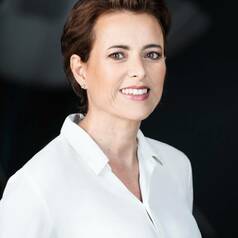
Marina Costa Lobo
Professor in political science , Fondation Maison des Sciences de l'Homme (FMSH)
Less ![]()
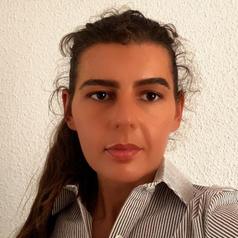
Marina Miron
Post-doctoral Researcher, King's College London
Dr. Marina Miron holds a post-doctoral research position at the War Studies Department, King's College London. Her research focuses on examining the information warfare strategies employed by Russia and China. Dr. Miron is actively involved in a research project funded by the British Academy in collaboration with Prof. David V. Gioe. This project explores effective countermeasures that the Western world can adopt in response to these strategies. Her research encompasses the theoretical aspects of information warfare and its practical implications, particularly in domains such as space, cyberspace, and the electromagnetic spectrum.
Less ![]()
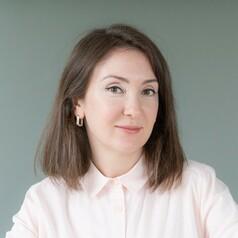
Marina Yusupova
Lecturer in Sociology, Edinburgh Napier University
Lecturer in Sociology at Edinburgh Napier University, feminist and decolonial researcher.
Less ![]()
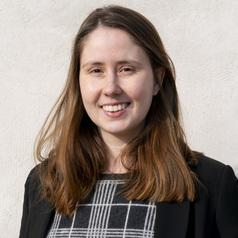
Marina Zucker-Marques
Senior Academic Researcher, Boston University Global Development Policy Center, Boston University
Less ![]()
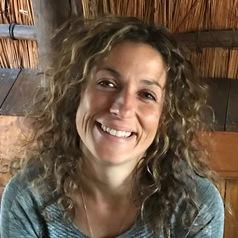
Marine Drouilly
Researcher, conservation and wildlife ecology , University of Cape Town
Marine Drouilly is the regional coordinator for carnivore surveys and research in West and Central Africa for the NGO Panthera. Marine's research interests are in conservation and wildlife ecology and she is particularly interested in human-carnivore relationships. Her current projects span across West and Central Africa. Marine is also a research associate at the Institute for Communities and Wildlife in Africa (iCWild), and at the Centre for Social Science Research (CSSR) at the University of Cape Town in South Africa.
Less ![]()
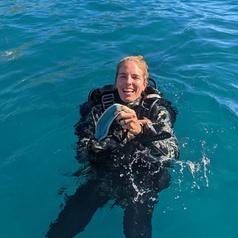
Marine Gouezo
Postdoctoral research fellow, Southern Cross University
Marine’s research interests lie primarily in coral reef recovery along environmental gradients, whether recovery occurs naturally or is kickstarted by restoration actions. Her overarching research goal is to pinpoint what slows down the recovery of reefs, which often differs from reef to reef, to offer context-specific management options to fix it.
Less ![]()
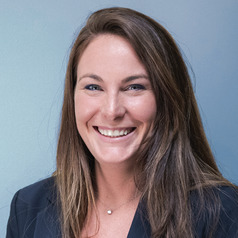
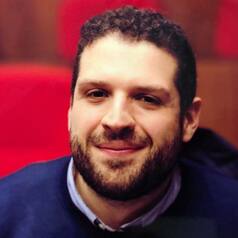
Mario Campana
Lecturer in Marketing, University of Bristol
Mario is a Lecturer in Marketing in the School of Management. He earned his PhD at Bayes Business School (formerly Cass) in 2015 and he held the position of Lecturer in Marketing at Goldsmiths, University of London, between 2015 and 2021. His research interests lie broadly within consumer research, and consumer culture theory specifically. His research programme looks at three consumer research domains: (1) materiality, (2) diversity and inclusion, focusing LGBTQ+ themes, and (3) alternative modes of market exchange. His approach is qualitative and interpretivist, and bridges marketing and management.
His work has been published in internationally recognised journals (e.g. Journal of Macromarketing, International Journal of Consumer Studied) and has been presented to leading conferences in marketing and management (e.g. Association of Consumer Research, Consumer Culture Theory, European Marketing Academy Conference, Academy of Management Annual Meeting).
Less ![]()
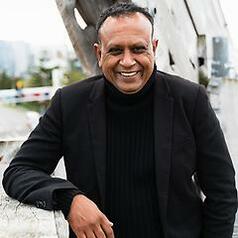
Mario Fernando
Professor of Management, University of Wollongong
Dr Mario Fernando is a Professor of Management with the Faculty of Business and Law, and the Director of the Centre for Cross-Cultural Management at University of Wollongong.
He is a Visiting Fellow at Cornell University and an Attorney-at-law of the Supreme Court of Sri Lanka.
His research and teaching interests are centred on exploring how responsible executive action leads to positive social change.
He has published three books and numerous academic journal articles in top ranked journals.
Currently, Mario is conducting research on responsible leadership and immigrants' identity work in particular, and on leadership, business ethics and human resource management topics in general.
Less ![]()
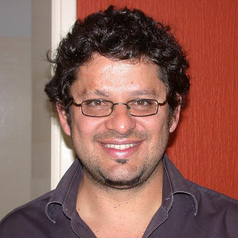
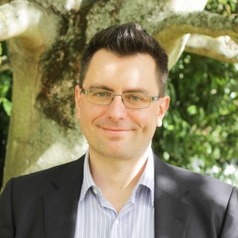
Mario Weick
Professor of Behavioural Science, Durham University
I am a Behavioural Scientist working at Durham University. My research focuses on how social hierarchies impact people’s thoughts, feelings, and actions. I am also engaged in translational work on behaviour change.
Less ![]()
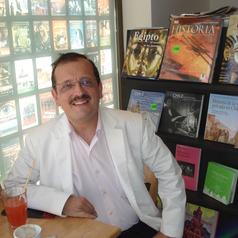
Mario I Aguilar
Professor of Religion and Politics, Director of the Centre for the Study of Religion and Politics, University of St Andrews
Mario I Aguilar is Professor of Religion and Politics, and Director of the Centre for the Study of Religion and Politics (CSRP) at the University of St. Andrews, Scotland, U.K. He is the author of several works on Pope Francis, including Pope Francis: His Life and Thought (2014), and Pope Francis: Journeys of a Peacemaker (2022). He has worked in African countries for the past 35 years after his doctoral studies at the School of Oriental and African Studies of the University of London.
Less ![]()
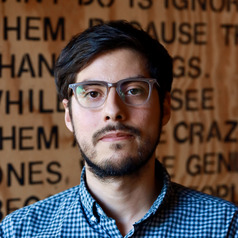
Mario Orospe Hernández
Ph.D. Candidate in Religious Studies, Arizona State University
A Fulbright scholar from Mexico City, Mario Orospe Hernandez is a doctoral candidate in Religious Studies at Arizona State University. He collaborates as a research assistant in the multi-year research project "Beyond Secularization: Religion, Science, and Technology in Public Life."
He is interested in understanding the relationship between religion, capitalism, and technology. Thus, his Ph.D. dissertation examines the impact of rituals and spirituality on the regimes of value, materiality, and labor of two poles of the tech-industry commodity chains: lithium mining in Bolivia and the development of technologies in Silicon Valley.
His first book, "Biopolítica y Liberación: la noción de vida humana en Agamben y Dussel", was published by the Argentinean Publisher Prometeo in 2023.
Less ![]()
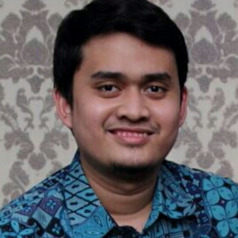
Mario Surya Ramadhan
Researcher, Badan Riset dan Inovasi Nasional (BRIN)
Mario Surya Ramadhan is a researcher at the Research Center for Politics, National Research and Innovation Agency Indonesia. His reserach interests include international security, foreign policy, and Indo-Pacific dynamics.
Less ![]()

Marion Cromb
Research Fellow in Physics, University of Southampton
Marion Cromb is currently a Research Fellow at the University of Southampton. They completed their PhD at the University of Glasgow. Their research interests are in various phenomena where both quantum mechanics and general relativity come into play.
Marion was born in London in 1995 and completed an Art Foundation year at Central Saint Martin's before studying an MSci Physics at the University of Birmingham, where their undergraduate and summer projects focused on quantum optics. At the University of Birmingham they were layout editor and frequent columnist for the university's science and technology magazine 'SATNAV'.
Less ![]()
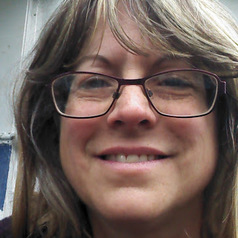
Marion Gibson
Professor of Renaissance and Magical Literatures, University of Exeter
I am Professor of Renaissance and Magical Literatures, and work in the Humanities Department at the Penryn Campus with History and English colleagues.
My research investigates the relationships between writings about magic and the supernatural and those about identity (national, local, sexual, religious and so on) in modernity – i.e. from around 1500 to the present day. I’m interested in meetings between cultures and disciplines, past and present, and how fiction and scholarly writing impact on and express lived identities today.
At present I'm writing Rediscovering Renaissance Witchcraft (Routledge, 2016), a book examining the ways in which sixteenth and seventeenth century writings on witchcraft have continued to inspire modern literature, especially popular novels, poems and films in Britain and America.
I'm also the author of Imagining the Pagan Past: Gods and Goddesses in Literature and History since the Dark Ages. (London and New York: Routledge, 2013), Witchcraft Myths in American Culture (New York: Routledge, 2007). Possession, Puritanism and Print: Darrell, Harsnett, Shakespeare and the Elizabethan Exorcism Controversy (London: Pickering and Chatto, 2006), Reading Witchcraft: Stories of Early English Witches (London and New York: Routledge, 1999), with Garry Tregidga and Shelley Trower, Mysticism, Myth and Celtic Identity (London: and New York: Routledge, 2012) and with Jo Esra, The Arden Shakespeare Dictionary of Shakespeare’s Demonology (London: Arden/Bloomsbury).
Less ![]()
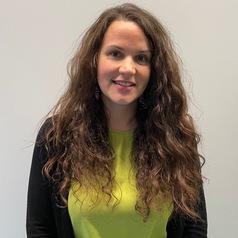
Marion Humbert
Postdoctoral Researcher in Immunology, Karolinska Institutet
I am a postdoctoral researcher in the field of Immunology (T cell responses in particular), currently working in the group of Prof. Johan Sandberg, Center for Infectious Medicine, Department of Medicine Huddinge, Karolinska Institutet, Sweden, with a particular focus on mucosal-associated invariant T (MAIT) cells.
Before joining Johan Sandberg’s group, I completed a first postdoctoral training in the group of Prof. Annika Karlsson at the Division of Clinical Microbiology, Department of Laboratory Medicine, Karolinska Institutet, where I investigated T cell responses to viral infections.
I obtained my MSc (Immunology, Microbiology, Infectious diseases) from Grenoble Alpes University, France, and my PhD (Immunology) from the University of Geneva, Switzerland (Prof. Stéphanie Hugues’ group). My PhD work aimed at investigating the modulation of peripheral T cell responses by unconventional antigen-presenting cells, in the contexts of anti-tumoral immunity and autoimmunity.
Less ![]()
- Market Data





















